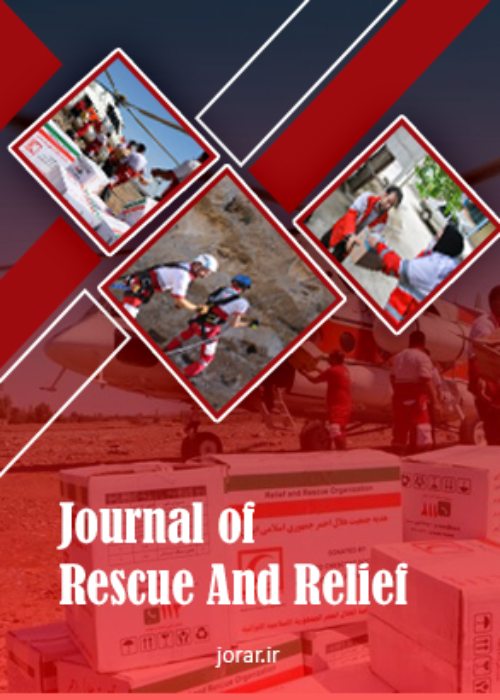Modeling the Performance of Humanitarian Supply Chain Management with the Help of Partial Least Squares (PLS)
Increasing the incidence of natural disasters around the world has led to increased concerns about the social and economic development of developed countries. Natural disasters are inevitable, but they can be taken to reduce their negative impacts on countries. Organizations involved in managing these crises must regulate their supply chain and make the necessary changes to improve the performance of the humanitarian supply chain.
Data analysis by partial least squares method (PLS) was performed using smart-pls2 software and a researcher-made questionnaire with 25 questions that examined six structures. In this research, 320 questionnaires have been distributed. In the statistical population of the survey, there are military centers, fire brigades, Omer Crescent population, emergency 115, crisis management and renovation committee in the parliament, governorate, municipalities, supply chain managers, Active practitioners in this field, subject specialists (reference persons and perpetrators in this field), and other members of the organizations involved in rescue and rescue operations in Tehran (randomly selected from the 22 areas). Eventually, 193 people were involved in relief and rescue operations. The reliability of the model has been investigated and verified through three ways of evaluating factor load coefficients, Cronbach's alpha coefficients, composite reliability (CR). The average variance extracted (AVE) values are greater than 0.5, and CR values are larger than AVEs. That means convergent validity. Also, the mean of the AVE for each structure is greater than 0.50 and this is a sign of convergent validity.
For the model, GOF is 0.56; that means the model has a great fit. The statistics above show that the proposed model is suitable for data collection. In general, the proposed model confirms the relationship between the use of information technology, mutual trust, flexibility, agility, adaptability and performance of the humanitarian supply chain. Fit statistics have four indicators: Goodness of Fitness (GFI) of 0.92, Fitted Goodness Index (AGFI) of 0.9, Root RMSEA error of 0.04, and 360.88 x 360 times. Finally, the ratio of k2 to the degree of freedom for 1.38 is obtained, indicating the good of fitness of the model fit with the data. With the aid of p-values and T-Values 8 hypotheses were confirmed in this modeling.
The results show that the agility and flexibility of organizations in the humanitarian supply chain are related to the use of information technology and organizational trust, which in turn affects performance.
- حق عضویت دریافتی صرف حمایت از نشریات عضو و نگهداری، تکمیل و توسعه مگیران میشود.
- پرداخت حق اشتراک و دانلود مقالات اجازه بازنشر آن در سایر رسانههای چاپی و دیجیتال را به کاربر نمیدهد.


